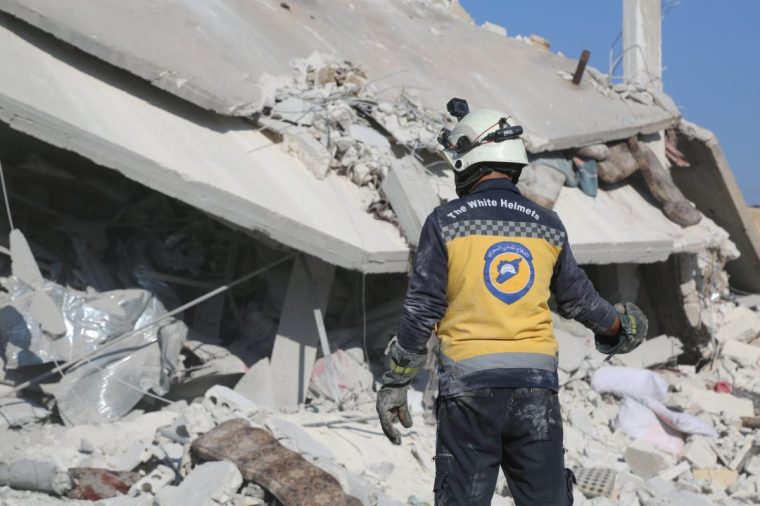A surprise offensive by Syrian rebels recorded rapid gains around the city of Aleppo on Thursday as the regime and Russian forces struggled to contain it.
Opposition factions launched the operation, dubbed “Deterrence of Aggression”, early on Wednesday, piercing government lines in the north-west of the country.
It is the largest rebel offensive since a limited ceasefire was declared in the region in 2020.
The rebels had taken control of 15 villages by Thursday, according to a spokesperson. The claim could not be independently verified but open-source investigators showed a rebel presence in several villages previously held by the regime.
Insurgent forces posted images of dead regime and Russian fighters, as well as military equipment and ammunition they claimed to have captured. Moscow intervened in the Syrian Civil War on the side of President Bashar al-Assad in 2015.
The Syrian government said the offensive had reached about six miles from Aleppo. Some pro-rebel sources and analysts suggested the offensive was even closer to Syria’s second city.
The Syrian army said it was confronting the insurgency with the help of allies, amid reports of casualties from Russian air strikes.
“Our forces are confronting the terrorist organisations with different power and in collaboration with friendly forces to ensure the situation returns to how it was,” the army said in a statement.
The Syrian Observatory for Human Rights, a UK-based monitoring group, reported at least 132 deaths during the offensive, including 65 among Islamist militia Hayat Tahrir al-Shamm, which is leading the offensive, 18 from allied factions, and 49 regime soldiers.
Emergency workers reported that regime and Russian air strikes killed 14 civilians west of Aleppo on Thursday.

A brigadier general of Iran’s Revolutionary Guards, Kioumars Pourhashemi, was also killed near Aleppo on Thursday, Iranian state media reported without providing further details. Both Iran and its Lebanese ally, Hezbollah, have forces fighting alongside the regime.
Ghassan Ibrahim, a Syrian-British journalist and founder of the Global Arab Network news outlet, said rebels could reach Aleppo “in a matter of days”.
“They have more advanced weapons than the Assad regime with very good technology, such as their drones,” he said, adding that the rebels were benefiting from Israel’s weakening of the regime’s allies, as well as support from neighbouring Turkey.
“They took advantage of Israel’s war with Hezbollah and they have seen that the Iranian presence in the area is becoming weaker. This move would not happen without cooperation or support from Turkey, which probably wants to clear its borders from Iranian militias.”
Russian military bloggers also claimed that Turkey was playing a key role in the offensive, and suggested it could be followed by an assault on Kurdish-held areas of the country.
Julian Barnes-Dacey, a Syria analyst at the European Council on Foreign Relations think tank, said the offensive exposed weaknesses of the regime, but predicted it would be able to regain control.
“Even if the regime is entrenched in power, It’s quite clear that it remains vulnerable and over-stretched across a number of fronts,” he said. “Damascus still doesn’t have the capabilities to maintain firm control over the entire country and is particularly vulnerable in the north-west.”
“Ultimately, the rebels no longer pose a strategic threat to the regime but they can take advantage of Damascus’s clear weaknesses and the deep brokenness hanging over the entire country to make unexpected and perhaps opportunistic advances.
“My sense is that the regime and the Russian won’t tolerate this kind of advance towards the key city of Aleppo and we can expect to now see a brutal counter-response that does succeed in pushing the rebels back.”
More than 500,000 people are believed to have been killed during the Syrian Civil War that has raged since 2011, following an uprising against the regime during the Arab Spring revolutions.
President Assad has been able to consolidate power in recent years with the aid of allies such as Russia, Iran, and Hezbollah, and has been able to restore ties that were previously severed due to the conduct of his forces, including readmittance to the Arab League last year.


